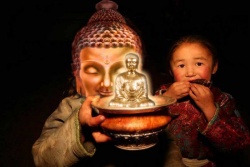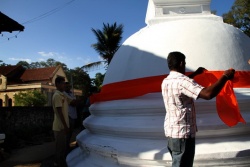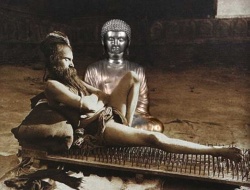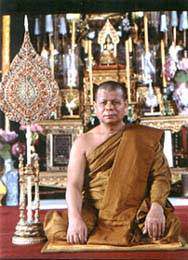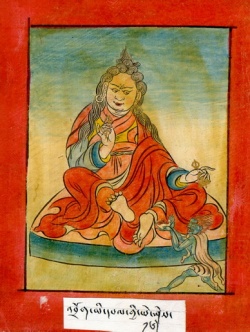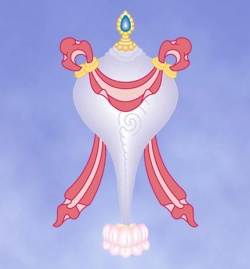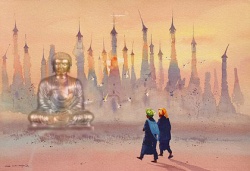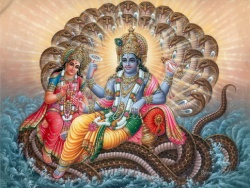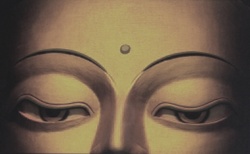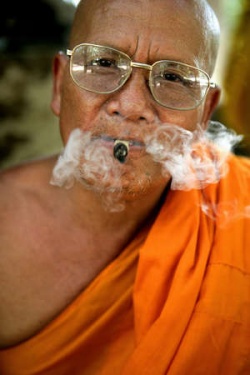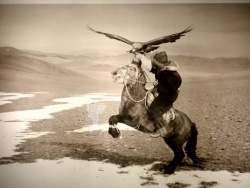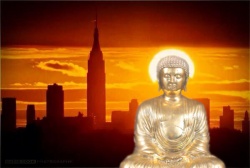Difference between revisions of "Akusala cetasikas"
| Line 211: | Line 211: | ||
[http://www.thisismyanmar.com/nibbana/mtinmon3.htm www.thisismyanmar.com] | [http://www.thisismyanmar.com/nibbana/mtinmon3.htm www.thisismyanmar.com] | ||
{{NewSourceBreak}} | {{NewSourceBreak}} | ||
| − | In [[Abhidhamma]] Class No. 14 on 24 September 2002 we gave an overview of the 52 [[cetasika]] and identified the [[three classes]] of [[cetasika]]: annasamana, [[akusala]] and [[sobhana]]. We then explored the first of these classes the annasamana in more detail. | + | In [[Abhidhamma]] Class No. 14 on 24 September 2002 we gave an overview of the 52 [[cetasika]] and identified the [[three classes]] of [[cetasika]]: [[annasamana]], [[akusala]] and [[sobhana]]. We then explored the first of these classes the [[annasamana]] in more detail. |
| − | In this paper we look at the second class of [[cetasika]], the [[akusala | + | In this paper we look at the second class of [[cetasika]], the [[akusala cetasika]]. There are fourteen [[akusala cetasika]] which are [[ethically]] [[immoral]]. They may be divided into four sub-groups as follows: |
| Line 219: | Line 219: | ||
(four [[cetasika]] headed by [[moha]]) | (four [[cetasika]] headed by [[moha]]) | ||
| − | (1)moha = [[avijja]] = [[delusion]], [[ignorance]], [[dullness]] | + | (1)[[moha]] = [[avijja]] = [[delusion]], [[ignorance]], [[dullness]] |
(2)ahirika = lack of [[moral shame]], impudence | (2)ahirika = lack of [[moral shame]], impudence | ||
(3)anottappa = lack of [[moral]] dread, [[recklessness]] | (3)anottappa = lack of [[moral]] dread, [[recklessness]] | ||
(4)uddhacca = unrest, [[restlessness]], [[distraction]] | (4)uddhacca = unrest, [[restlessness]], [[distraction]] | ||
| − | lobha-tri = papanca-dhamma | + | [[lobha-tri]] = [[papanca-dhamma]] |
(three [[cetasika]] headed by [[lobha]]) | (three [[cetasika]] headed by [[lobha]]) | ||
(5) [[lobha]] = [[raga]] = [[tanha]] = [[greed]], [[attachment]], [[sensuous desire]] | (5) [[lobha]] = [[raga]] = [[tanha]] = [[greed]], [[attachment]], [[sensuous desire]] | ||
| − | (6) | + | (6) [[miccha ditthi]] = [[wrong view]], [[evil]] opinion |
(7) [[mana]] = [[conceit]], [[pride]] | (7) [[mana]] = [[conceit]], [[pride]] | ||
| Line 236: | Line 236: | ||
(8) [[dosa]] = [[patigha]] = [[hatred]], [[anger]], [[aversion]] | (8) [[dosa]] = [[patigha]] = [[hatred]], [[anger]], [[aversion]] | ||
(9) [[issa]] = [[envy]], [[jealousy]] | (9) [[issa]] = [[envy]], [[jealousy]] | ||
| − | (10)macchariya = [[avarice]], [[stinginess]], [[selfishness]] | + | (10)[[macchariya]] = [[avarice]], [[stinginess]], [[selfishness]] |
| − | (11)kukkucca = {{Wiki|worry}}, {{Wiki|scruples}}, {{Wiki|remorse}} | + | (11)[[kukkucca]] = {{Wiki|worry}}, {{Wiki|scruples}}, {{Wiki|remorse}} |
end – tri = dull and wavering ones | end – tri = dull and wavering ones | ||
(last three [[immoral]] [[cetasika]]) | (last three [[immoral]] [[cetasika]]) | ||
| − | (12)thina = [[sloth]] | + | (12)[[thina]] = [[sloth]] |
| − | (13)middha = [[torpor]] | + | (13)[[middha]] = [[torpor]] |
| − | (14)vicikiccha = [[sceptical doubt]], {{Wiki|perplexity}} | + | (14)[[vicikiccha]] = [[sceptical doubt]], {{Wiki|perplexity}} |
English Meaning of the [[Pali]] Words | English Meaning of the [[Pali]] Words | ||
| Line 250: | Line 250: | ||
Reference: Brown, Lesley (Ed.), 1993, “The New Shorter {{Wiki|Oxford}} English {{Wiki|Dictionary}}”, Clarendon Press, {{Wiki|Oxford}}. | Reference: Brown, Lesley (Ed.), 1993, “The New Shorter {{Wiki|Oxford}} English {{Wiki|Dictionary}}”, Clarendon Press, {{Wiki|Oxford}}. | ||
| − | (1)moha = [[avijja]] = [[delusion]], [[ignorance]], [[dullness]] | + | (1)[[moha]] = [[avijja]] = [[delusion]], [[ignorance]], [[dullness]] |
[[delusion]]: a false [[impression]] or opinion, especially as a symptom of {{Wiki|mental illness}} | [[delusion]]: a false [[impression]] or opinion, especially as a symptom of {{Wiki|mental illness}} | ||
| Line 259: | Line 259: | ||
dull: make sluggish or inert; make stupid or unresponsive; make blunt; make listless, {{Wiki|depressed}} or gloomy; grow dim or tarnished | dull: make sluggish or inert; make stupid or unresponsive; make blunt; make listless, {{Wiki|depressed}} or gloomy; grow dim or tarnished | ||
| − | (2)ahirika = lack of [[moral shame]], impudence | + | (2)[[ahirika]] = lack of [[moral shame]], impudence |
[[moral]]: of or pertaining to [[human]] [[character]] or {{Wiki|behaviour}} considered as good or bad; of or pertaining to the {{Wiki|distinction}} between right and wrong, or [[good and evil]], in [[relation]] to the [[actions]], [[Wikipedia:Volition (psychology)|volitions]], or [[character]] of responsible [[beings]]; [[ethical]] | [[moral]]: of or pertaining to [[human]] [[character]] or {{Wiki|behaviour}} considered as good or bad; of or pertaining to the {{Wiki|distinction}} between right and wrong, or [[good and evil]], in [[relation]] to the [[actions]], [[Wikipedia:Volition (psychology)|volitions]], or [[character]] of responsible [[beings]]; [[ethical]] | ||
| Line 274: | Line 274: | ||
| − | 4)uddhacca = unrest, [[restlessness]], [[distraction]] | + | 4)[[uddhacca]] = unrest, [[restlessness]], [[distraction]] |
unrest: disturb, trouble | unrest: disturb, trouble | ||
| Line 282: | Line 282: | ||
[[distraction]]: the [[action]] of drawing or forcing apart; forcible disruption; severance; [[division]]; separation; removal; dispersal | [[distraction]]: the [[action]] of drawing or forcing apart; forcible disruption; severance; [[division]]; separation; removal; dispersal | ||
| − | (5)lobha = [[raga]] = [[tanha]] = [[greed]], [[attachment]], [[sensuous desire]] | + | (5)[[lobha ]]= [[raga]] = [[tanha]] = [[greed]], [[attachment]], [[sensuous desire]] |
[[greed]]: intense or inordinate longing, especially for [[wealth]] or [[food]]; [[avarice]], covetous [[desire]] | [[greed]]: intense or inordinate longing, especially for [[wealth]] or [[food]]; [[avarice]], covetous [[desire]] | ||
| Line 290: | Line 290: | ||
[[sensuous]]: of or pertaining to the [[senses]] or [[sensation]]; derived from or affecting the [[senses]], based on or relating to [[material objects]] or [[beings]]. | [[sensuous]]: of or pertaining to the [[senses]] or [[sensation]]; derived from or affecting the [[senses]], based on or relating to [[material objects]] or [[beings]]. | ||
| − | (6) | + | (6)[[miccha ditthi]] = [[wrong view]], [[evil]] opinion |
[[evil]]: {{Wiki|morally}} depraved, bad, wicked; causing [[pain]] or trouble; [[unpleasant]], [[offensive]], [[disagreeable]]; [[unwholesome]], dissatisfactory | [[evil]]: {{Wiki|morally}} depraved, bad, wicked; causing [[pain]] or trouble; [[unpleasant]], [[offensive]], [[disagreeable]]; [[unwholesome]], dissatisfactory | ||
| Line 296: | Line 296: | ||
opinion: a [[view]] held about a particular [[subject]] or point; a [[judgement]] formed; a [[belief]] | opinion: a [[view]] held about a particular [[subject]] or point; a [[judgement]] formed; a [[belief]] | ||
| − | (7)mana = [[conceit]], [[pride]] | + | (7)[[mana]] = [[conceit]], [[pride]] |
[[conceit]]: overestimation of oneself or one’s personal qualities; vanity; that which is conceived in the [[mind]], a {{Wiki|conception}}, a notion, an [[idea]]; the {{Wiki|faculty}} of [[mental]] {{Wiki|conception}}; apprehension, [[understanding]]; personal opinion, [[judgement]], estimation | [[conceit]]: overestimation of oneself or one’s personal qualities; vanity; that which is conceived in the [[mind]], a {{Wiki|conception}}, a notion, an [[idea]]; the {{Wiki|faculty}} of [[mental]] {{Wiki|conception}}; apprehension, [[understanding]]; personal opinion, [[judgement]], estimation | ||
| Line 302: | Line 302: | ||
[[pride]]: the quality of having a high, especially an excessively high opinion of one’s own worth or importance; inordinate [[self-esteem]]; [[arrogant]] or overbearing conduct, haughtiness | [[pride]]: the quality of having a high, especially an excessively high opinion of one’s own worth or importance; inordinate [[self-esteem]]; [[arrogant]] or overbearing conduct, haughtiness | ||
| − | (8)dosa = [[patigha]] = [[hatred]], [[anger]], [[aversion]] | + | (8)[[dosa]] = [[patigha]] = [[hatred]], [[anger]], [[aversion]] |
[[hatred]]: a [[feeling]] or {{Wiki|hostility}} or strong [[aversion]] towards a [[person]] or thing; active and [[violent]] dislike | [[hatred]]: a [[feeling]] or {{Wiki|hostility}} or strong [[aversion]] towards a [[person]] or thing; active and [[violent]] dislike | ||
| Line 310: | Line 310: | ||
[[aversion]]: the [[action]] of turning away oneself, one’s [[eyes]] etc; [[mental]] [[attitude]] or [[opposition]] or [[repugnance]]; a habitual dislike; [[antipathy]], unwillingness | [[aversion]]: the [[action]] of turning away oneself, one’s [[eyes]] etc; [[mental]] [[attitude]] or [[opposition]] or [[repugnance]]; a habitual dislike; [[antipathy]], unwillingness | ||
| − | (9)issa = [[envy]], [[jealousy]] | + | (9)[[issa]] = [[envy]], [[jealousy]] |
[[envy]]: look maliciously upon, [[grudge]]; {{Wiki|hostility}}; [[malice]]; [[enmity]]; a [[feeling]] of resentful or discontented longing aroused by another person’s better [[fortune]], situation, etc. | [[envy]]: look maliciously upon, [[grudge]]; {{Wiki|hostility}}; [[malice]]; [[enmity]]; a [[feeling]] of resentful or discontented longing aroused by another person’s better [[fortune]], situation, etc. | ||
| Line 317: | Line 317: | ||
| − | (10)macchariya = [[avarice]], [[stinginess]], [[selfishness]] | + | (10)[[macchariya]] = [[avarice]], [[stinginess]], [[selfishness]] |
[[avarice]]: [[greed]] for gain, cupidity; eager [[desire]] to get or keep something for oneself | [[avarice]]: [[greed]] for gain, cupidity; eager [[desire]] to get or keep something for oneself | ||
| Line 325: | Line 325: | ||
[[selfish]]: concerned chiefly with one’s own personal advantage or {{Wiki|welfare}} to the exclusion of regard for others, deficient in [[consideration for others]]; actuated by or appealing to self-interest | [[selfish]]: concerned chiefly with one’s own personal advantage or {{Wiki|welfare}} to the exclusion of regard for others, deficient in [[consideration for others]]; actuated by or appealing to self-interest | ||
| − | (11)kukkucca = {{Wiki|worry}}, {{Wiki|scruples}}, {{Wiki|remorse}} | + | (11)[[kukkucca]] = {{Wiki|worry}}, {{Wiki|scruples}}, {{Wiki|remorse}} |
{{Wiki|worry}}: a state or [[feeling]] of [[mental]] unease or [[anxiety]] regarding or [[arising]] from one’s cares or responsibilities, [[uncertainty]] about the {{Wiki|future}}, {{Wiki|fear}} of failure etc., anxious [[concern]], [[anxiety]] | {{Wiki|worry}}: a state or [[feeling]] of [[mental]] unease or [[anxiety]] regarding or [[arising]] from one’s cares or responsibilities, [[uncertainty]] about the {{Wiki|future}}, {{Wiki|fear}} of failure etc., anxious [[concern]], [[anxiety]] | ||
| Line 335: | Line 335: | ||
[[Kukkucca]] could also be translated as: “flurry-and-worry”. | [[Kukkucca]] could also be translated as: “flurry-and-worry”. | ||
| − | (12)thina = [[sloth]] | + | (12)[[thina]] = [[sloth]] |
[[sloth]]: inactivity, reluctance to exert oneself; sluggishness, [[laziness]]; slowness, tardiness | [[sloth]]: inactivity, reluctance to exert oneself; sluggishness, [[laziness]]; slowness, tardiness | ||
| − | (13)middha = [[torpor]] | + | (13)[[middha]] = [[torpor]] |
[[torpor]]: be sluggish; torpid [[condition]] or quality; {{Wiki|apathy}}, listlessness, [[dullness]]; [[indifference]] | [[torpor]]: be sluggish; torpid [[condition]] or quality; {{Wiki|apathy}}, listlessness, [[dullness]]; [[indifference]] | ||
| − | (14)vicikiccha = [[sceptical doubt]], {{Wiki|perplexity}} | + | (14)[[vicikiccha]] = [[sceptical doubt]], {{Wiki|perplexity}} |
{{Wiki|scepticism}}: the [[doctrine]] of the sceptics, {{Wiki|Pyrrhonism}}; the opinion that [[real knowledge]] of any kind is unattainable; a {{Wiki|sceptical}} [[attitude]] in [[relation]] to a particular branch of [[knowledge]]; [[doubt]] as to the [[truth]] of some [[assertion]] or apparent fact; mistrustfulness, doubting disposition | {{Wiki|scepticism}}: the [[doctrine]] of the sceptics, {{Wiki|Pyrrhonism}}; the opinion that [[real knowledge]] of any kind is unattainable; a {{Wiki|sceptical}} [[attitude]] in [[relation]] to a particular branch of [[knowledge]]; [[doubt]] as to the [[truth]] of some [[assertion]] or apparent fact; mistrustfulness, doubting disposition | ||
Revision as of 12:27, 9 September 2014
(akusala cetasikas); Fourteen unwholesome mental factors.
Akusala Cetasikas
(Immoral Mental Concomitants)
There are 14 cetasikas which are ethically immoral. They may be divided into four sub-groups as follows.
1. Moha - catukka=akusala - sadharana (4)
(A group of four cetasikas headed by Moha)
(1) Moha = avijja =delusion, ignorance, dullness
(2) Ahirika=lack of moral shame, impudence
(3) Anottappa =lack of moral dread, recklessness
(4) Uddhacca=unrest, restlessness, distraction.
2. Lobha-tri =papanca -dhamma (3)
(A group of three cetasikas headed by lobha)
(5) Lobha=raga =tanha =greed, attachment, sensuous desire
(6) Ditthi =wrong view, evil opinion
(7) Mana=conceit, pride
3. Dosa - catukka=Hateful ones (4)
(A group of four cetasikas headed by dosa)
(8) Dosa=patigha =hatred, anger, aversion
(9) Issa=envy, jealousy
(10) Macchariya=avarice, stinginess, selfishness
(11) Kukkucca=worry, scruples, remorse
4. End - tri=dull and wavering ones (3)
(The last three immoral cetasikas)
(12) Thina =sloth
(13) Middha=torpor
(14) Vicikiccha=sceptical doubt, perplexity.
Explanation
(1) Moha
Moha is the ignorance of the true nature of sense-objects. All living and non-living things are made up of nama and rupa (mind and matter) which are endowed with the four common characteristics of anicca (impermanence), dukkha (suffering), anatta (non-self) and asubha (loathsomeness).
As moha veils our mental eyes and shields us from seeing the true nature of things, we cannot see the extremely-rapid and incessant arising and dissolving of nama and rupa and the consequent four characteristics mentioned above. When we cannot see the true nature of things, we get confused and take the opposite characteristics to be true. So we see things as nicca (permanent), sukha (pleasant), atta (self or person) and subha (beautiful).
On account of this wrong vision of moha, a chain of undesirable consequences including sufferings and miseries arises one after another. Thus moha is like the director of a movie film; it directs everything but we are not aware of it as we cannot see the director on the movie-screen. It is indeed the primary root of all evils and sufferings in the world.
Moha is the leader of all the immoral cetasika. Moha and its three compatriots (ahirika, anottappa and uddhacca) associate with all immoral consciousness. So they are known as 'akusala - sadharana.
Because moha is opposed to insight or wisdom, it is known as 'avijja.' Moha clouds our knowledge with regard to kamma and its consequences and the four Noble Truths.
(2) Ahirika
Ahirika urges a person not to be ashamed of committing immoral actions, speeches and thoughts.
In Puggala -pannatti (para.59) it is stated thus:
'Not to be ashamed of evil or unwholesome things: this is called lack of moral shame. As a village-pig does not feel loathsome in eating night-soil, so ahirika does not feel loathsome in committing evil deeds.
(3) Anottappa
Anottappa urges a person not to be afraid of committing immoral actions, speeches and thoughts.
In Puggala -pannatti (para. 60) it is Stated: "Not to dread what one should dread, not to be afraid of evil, unwholesome things: this is called lack of moral dread."
Anottappa is compared to a moth that is singed by fire. The moth, being unaware of the consequences, gets attracted by fire and plunges into the fire. In the same way anottappa, being unaware of the consequences, gets attracted, by evil, unwholesome things and plunges into evil deeds.
It is mentioned in Anguttara Nikaya (II. 6): "There are two sinister things, namely slack of moral shame and moral dread, etc." It should be noted that the recklessness due to ahirika and anottappa arises as a consequence of moha which clouds the mind and blinds the eye from seeing the results of evil deeds (kamma).
(4) Uddhacca
Uddhacca is the restless state of the mind which is compared to the disturbed state of a heap of ashes when hit with a stone.
As we cannot see our face in boiling water, a restless mind will not see the consequences of evil deeds. Uddhacca is also a follower of moha which makes the mind confused and let distraction (uddhacca) arise consequently.
(5) Lobha
Lobha is a strong desire for sensuous objects or jhana happiness. It will never give up this intrinsic nature of desiring however much one may possess. Even the whole wealth on earth cannot satisfy the desire of, Lobha. It is always on the look-out for something new.
Thus one cannot be truly happy if one cannot eliminate Lobha.
The second nature of lobha is attachment or clinging to sensuous objects or to jhana and jhana happiness. This nature of attachment is compared with the sticky nature of monkey-catching glue. This glue is prepared by heating several kinds of sticky gum available in the forest to form a sticky paste.
The monkey-catcher applies this sticky mess of gum on the trunks of several trees. When sun-rays fall on the gum, spectra of various colours appear. A monkey, being curious, touches the gum with one paw which becomes firmly attached to the gum. In struggling to pull out this paw, the monkey pushes the tree with the other paw and also kicks the tree with both legs. So both paws and both legs are stuck to the gum.
Then the monkey tries to pull itself out by pushing the tree with its head. So the head is also stuck to the gum. The monkey - catcher may now come out from his hiding place and catches or kills the monkey easily.
Remember that worldly people are, being attached firmly by lobha to sense-objects as well as to their possessions. They cannot renounce the world and their worldly possessions including wives or husbands, sons and daughters. So they are being caught up by old age, disease and death life after life.
Lobha, together with its two great followers i.e., ditthi (wrong view) and mana (conceit), is responsible for extending the life cycle or the round of rebirth that is known as samsara. On account of this fact, Lobha, ditthi and mana are collectively , called 'papanca dhamma'.
(6) Ditthi
Ditthi is usually translated as view, belief, opinion, etc. Samma-ditthi means right view and miccha-ditthi means wrong view. Here, as an immoral cetasika, ditthi is used in the sense of wrong view.
It has been explained above that moha clouds the mind and blinds the eye not to see things as they really are. It makes one see things as nicca (permanent), sukha (pleasant), atta (self or person) and subha (beautiful). Because of this wrong Vision, lobha clings or attaches to this 'self or person' and ditthi takes the wrong view that 'self' and 'person' really exist.
The most basic and universal wrong view is the 'personality-belief (sakkaya-ditthi) or 'ego-illusion' ( atta-ditthi).
Sakkaya-ditthi believes that this combination of mind and body is 'I', 'you', 'he', 'she', 'man', 'woman', 'person', etc.
Atta-ditthi believes in the existence of an 'atta or soul' or 'ego' or 'life-entity' in the body.
From this sakkaya-ditthi or atta-ditthi as well as from the ignorance due to moha there spring up thousands of wrong views. Sakkaya-ditthi is one of the ten fetters binding to existence. It is eliminated only on reaching the path of stream-winning (sotapatti-magga).
(7) Mana
Mana (conceit), like ditthi, is also a by-product of moha and lobha. Moha gives the wrong vision that 'persons' exist and that they are permanent, pleasant and beautiful. So lobha clings to these persons, especially the one represented by oneself.
Mana looks on this self-person as 'I am the best, I know most, I have no equals in the world'.
This conceit or pride is of three kinds:
the equality-conceit (mana),
the inferiority-conceit (omana) and
the superiority-conceit (atimana).
As the saying goes: 'pride will have a fall', pride or conceit is not a virtue to be proud of.
Mana is one of the ten fetters binding to existence. It vanishes completely only at the attainment of arahatship.
(8) Dosa
Dosa is translated as hatred, anger or aversion. It is the most destructive element in the world. It is more frightful than the atomic weapon. Of course, when someone pulls the trigger on the atomic weapon, he does so under the influence of dosa.
Normally, when one encounters with a desirable sense-object, clinging or attachment (lobha) arises, and when one encounters with an undesirable object, anger or aversion arises. The anger (dosa) destroys one first, before it destroys others.
Not only inflated dosa as the one present in an angry person but also depressed dosa as the one felt by a sad or depressed person are destructive. According to Abhidhamma the one who retaliates an insult is more foolish than the one who starts the insult.
(9) Issa
Issa has the characteristic of envying others' success and prosperity. As such it is objective, i.e., it looks not to oneself but to others.
(10) Macchariya
Macchariya has the characteristic of concealing one's property. It does not appreciate to share one's property or special privilege with others. It takes the form of stinginess when one is reluctant to give money for charity.
As mentioned in Anguttara Nikaya (IX, 49), there are five kinds of stinginess with respect to dwelling place, families, gain, recognition and knowledge. Contrary to issa, macchariya is subjective. Issa and macchariya make one unhappy without any inducement from others. One shall feel immediately happy if one can drive them away from one's mind.
(11) Kukkucca
Kukkucca has the characteristic of grieving over evil that is done and the good that is not done.
As it is useless to cry over spilt milk, it is of no use to repent or feel sorry about wrong doings.
Issa, macchariya and kukkucca are three companions of dosa. They arise separately because their lines of reasoning are different, but when one of them arises, it is always accompanied by dosa.
(12) Thina
Thina is the shrinking state of the mind like a feather before fire. When one is idle due to lack of viriya (effort), one is under the influence of thina. It is the sickness of citta.
(13) Middha
Middha is the morbid state of mental concomitants. When one feels inactive or inert, one is influenced by middha. It is the sickness of cetasikas.
Both thina and middha are opposed to viriya. Where there are thina and middha, there is no viriya
(14) Vicikiccha
Vicikiccha is sceptical doubt about the Buddha, Dhamma, the Samgha, the Training; about things in past lives and future lives; about the Law of Causal Relations; and finally about the four Noble Truths.
Vicikiccha is one of the five Hindrances and is also included in the ten Fetters to existence. It disappears completely and for ever at Stream-entry.
BRIEF BIOGRAPHY OF THE AUTHOR
Dr. M. Tin Mon, B.Sc.Hons., M.Sc., Ph. D.
Saddhamma Jotikadhaja
( Adviser to the Ministry of Religious Affairs, Union of Myanmar )
He was born in kamawet village, Mudon township, Mon State. Union of Myanmar, on January 13, 1934.
His parents were U Yaw In and Daw Sein Tan who were devout Buddhists. They belonged to the Mon race and made their living by farming.
Mehm Tin Mon attended Kamawet Primary School and Mudon State High School where he topped his class every year.
He passed the High School Leaving Examination in 1951 with distinctions in Mathematics and General Science. He also passed the Matriculation Examination in the same year from the first division with distinction in Mathematics.
He joined the University of Yangon in 1951. In the Intermediate Examination held in 1953, he scored the highest marks in Mathematics and Chemistry, and he was awarded the University Hoe Wah Kain Gold Medal as well as the University Scholarship.
In the Bachelor of Science Examination held in 1955, he stood first with distinctions in Physics, Chemistry and Pure Mathematics. Again he was awarded a University gold medal called Esoof Bimiah Gold Medal.
In 1956 he passed the B.Sc. Honours Examination in Chemisry with flying colours and a third Universit gold medal called U Shwe Lay Gold Medal was awarded to him.
In 1957 he went to the United States of America to study at the University of Illinois on a State Scholarship sponsored by the Government of the Union of Myanmar. Here also he was awarded the University Fellowship for two consecutive years for his outstanding scholastic record. He gained the Master of Science Degree in1958 and the Doctorate Degree in 1960. He also won membership to Phi Lambaa Upsilon Society and Sigma Xi Society.
He served his country for more than 36 years from 1956 to 1992 working as Lecturer and Head of Department of Chemistry in several Institutes and finally as Professor of Chemistry in the University of Mawlamyine (Moulmein). He retired from Professorship on December 1, 1992.
During his service to the State, he headed the Buddhist Association of the Institute of Medicine (I), the Buddhist Association of the Institute of Education and the Buddhist Association of Mawlamyine University. He also served as Secretary and later as President of the Central Buddhist Association of Universities and Institutes in Yangon from 1983 to 1986. He succeeded in raising funds and building the beautiful two-storeyed Dhammayone (Community Hall for religious purposes) and the sacred Shrine (Pagoda) in the University of Mawlamyine.
Dr. Tin Mon also excelled in religious examinations. He stood first in the Abhidhamma Examination (Ordinary Level) in 1981. He also stood first in the Abhidhamma Examination (Honours Level) in 1983. Again in 1984 he stood first in the Visuddhi Magga Examination. These examinations are held annually in Myanmar by the Department of Religious Affairs.
Dr. Tin Mon has written over thirty books on education as well as on Buddhism. He travelled throughout Myanmar deliverng lectures on Buddhism and conducting short intensive classes of Abhidhamma. He was awarded the title of Saddhamma Jotakadhaja by the Government of the Union of Myanfliat in 1994 for his outstanding contribution to the propagation of Buddhism.
Dr. Tin Mon was appointed as an Adviser to the Ministry of Religious Affairs on August 1, 1993, and he has been serving the State in this capacity ever since.
Source
In Abhidhamma Class No. 14 on 24 September 2002 we gave an overview of the 52 cetasika and identified the three classes of cetasika: annasamana, akusala and sobhana. We then explored the first of these classes the annasamana in more detail.
In this paper we look at the second class of cetasika, the akusala cetasika. There are fourteen akusala cetasika which are ethically immoral. They may be divided into four sub-groups as follows:
moha – catukka = akusala – sadharana
(four cetasika headed by moha)
(1)moha = avijja = delusion, ignorance, dullness
(2)ahirika = lack of moral shame, impudence
(3)anottappa = lack of moral dread, recklessness
(4)uddhacca = unrest, restlessness, distraction
lobha-tri = papanca-dhamma
(three cetasika headed by lobha)
(5) lobha = raga = tanha = greed, attachment, sensuous desire
(6) miccha ditthi = wrong view, evil opinion
(7) mana = conceit, pride
dosa – catukka = hateful ones
(four cetasika headed by dosa)
(8) dosa = patigha = hatred, anger, aversion
(9) issa = envy, jealousy
(10)macchariya = avarice, stinginess, selfishness
(11)kukkucca = worry, scruples, remorse
end – tri = dull and wavering ones
(last three immoral cetasika)
(12)thina = sloth
(13)middha = torpor
(14)vicikiccha = sceptical doubt, perplexity
English Meaning of the Pali Words
Reference: Brown, Lesley (Ed.), 1993, “The New Shorter Oxford English Dictionary”, Clarendon Press, Oxford.
(1)moha = avijja = delusion, ignorance, dullness
delusion: a false impression or opinion, especially as a symptom of mental illness
ignorance: the fact or condition of being ignorant.; lack of knowledge (general or particular)
dullness: the quality or state of being dull
dull: make sluggish or inert; make stupid or unresponsive; make blunt; make listless, depressed or gloomy; grow dim or tarnished
(2)ahirika = lack of moral shame, impudence
moral: of or pertaining to human character or behaviour considered as good or bad; of or pertaining to the distinction between right and wrong, or good and evil, in relation to the actions, volitions, or character of responsible beings; ethical
shame: the feeling of humiliation or distress arising from the consciousness of something dishonourable or ridiculous in one’s own or another’s behaviour or circumstances, or from a situation offensive to one’s own or another’s sense of propriety or decency. Disgrace, loss of esteem or reputation, an instance of this.
impudence: shamelessness; immodesty, indelicacy; shameless effrontery; insolent disrespect; insolence, presumption; freedom from indifference; cool confidence
(3)anottappa = lack of moral dread, recklessness
dread: fear greatly, regard with awe; fear, be afraid
recklessness: neglect or disregard of something
4)uddhacca = unrest, restlessness, distraction
unrest: disturb, trouble
restless: unable to rest; deprived of rest; finding no rest; uneasy in mind or spirit; fidgety; averse to being quiet or settled; constantly in motion; continually operating, never ceasing or pausing
distraction: the action of drawing or forcing apart; forcible disruption; severance; division; separation; removal; dispersal
(5)lobha = raga = tanha = greed, attachment, sensuous desire
greed: intense or inordinate longing, especially for wealth or food; avarice, covetous desire
attachment: the action of fastening, joining, affixing or attributing; something attached, or intended to be attached; an adjunct
sensuous: of or pertaining to the senses or sensation; derived from or affecting the senses, based on or relating to material objects or beings.
(6)miccha ditthi = wrong view, evil opinion
evil: morally depraved, bad, wicked; causing pain or trouble; unpleasant, offensive, disagreeable; unwholesome, dissatisfactory
opinion: a view held about a particular subject or point; a judgement formed; a belief
(7)mana = conceit, pride
conceit: overestimation of oneself or one’s personal qualities; vanity; that which is conceived in the mind, a conception, a notion, an idea; the faculty of mental conception; apprehension, understanding; personal opinion, judgement, estimation
pride: the quality of having a high, especially an excessively high opinion of one’s own worth or importance; inordinate self-esteem; arrogant or overbearing conduct, haughtiness
(8)dosa = patigha = hatred, anger, aversion
hatred: a feeling or hostility or strong aversion towards a person or thing; active and violent dislike
anger: trouble, affliction, vexation, sorrow; extreme or passionate displeasure, wrath; physical pain, infliction
aversion: the action of turning away oneself, one’s eyes etc; mental attitude or opposition or repugnance; a habitual dislike; antipathy, unwillingness
(9)issa = envy, jealousy
envy: look maliciously upon, grudge; hostility; malice; enmity; a feeling of resentful or discontented longing aroused by another person’s better fortune, situation, etc.
jealousy: the consuming fear, suspicion, or belief that one is being or might be displaced in someone’s affections; distrust of the fidelity of a spouse or lover; resentment or envy of another person or of his or her possible or actual success, advantage, or superiority; rivalry
(10)macchariya = avarice, stinginess, selfishness
avarice: greed for gain, cupidity; eager desire to get or keep something for oneself
stingy: of a person, action, etc.: niggardly, parsimonious, mean; of a food, a portion, supply etc.; given sparingly or grudgingly; scanty, meagre
selfish: concerned chiefly with one’s own personal advantage or welfare to the exclusion of regard for others, deficient in consideration for others; actuated by or appealing to self-interest
(11)kukkucca = worry, scruples, remorse
worry: a state or feeling of mental unease or anxiety regarding or arising from one’s cares or responsibilities, uncertainty about the future, fear of failure etc., anxious concern, anxiety
scruple: a thought or circumstance that causes the mind unease or disquiet; a feeling or doubt or hesitation with regard to the morality or propriety of a course of action; a fine point of conscience;
remorse: deep regret and repentance for a wrong committed; compunction; regretful remembrance of a thing; pity
Kukkucca could also be translated as: “flurry-and-worry”.
(12)thina = sloth
sloth: inactivity, reluctance to exert oneself; sluggishness, laziness; slowness, tardiness
(13)middha = torpor
torpor: be sluggish; torpid condition or quality; apathy, listlessness, dullness; indifference
(14)vicikiccha = sceptical doubt, perplexity
scepticism: the doctrine of the sceptics, Pyrrhonism; the opinion that real knowledge of any kind is unattainable; a sceptical attitude in relation to a particular branch of knowledge; doubt as to the truth of some assertion or apparent fact; mistrustfulness, doubting disposition
doubt: uncertainty as to the truth or reality of something or as to the wisdom of a course of action; occasion or room for uncertainty; an inclination to disbelieve or hesitate; a reason to disbelieve or hesitate, a reservation
perplexity: inability to deal with or understand a thing owing to its intricate nature; confusion, bewilderment
References
Dr. Mehm Tin Mon, “The Essence of Buddha Abhidhamma”, publisher Mehm Tay Zar Mon, Yangon, 1995, Ch. 2, pp. 76-83.
Brown, Lesley (Ed.), 1993, “The New Shorter Oxford English Dictionary”, Clarendon Press, Oxford.
